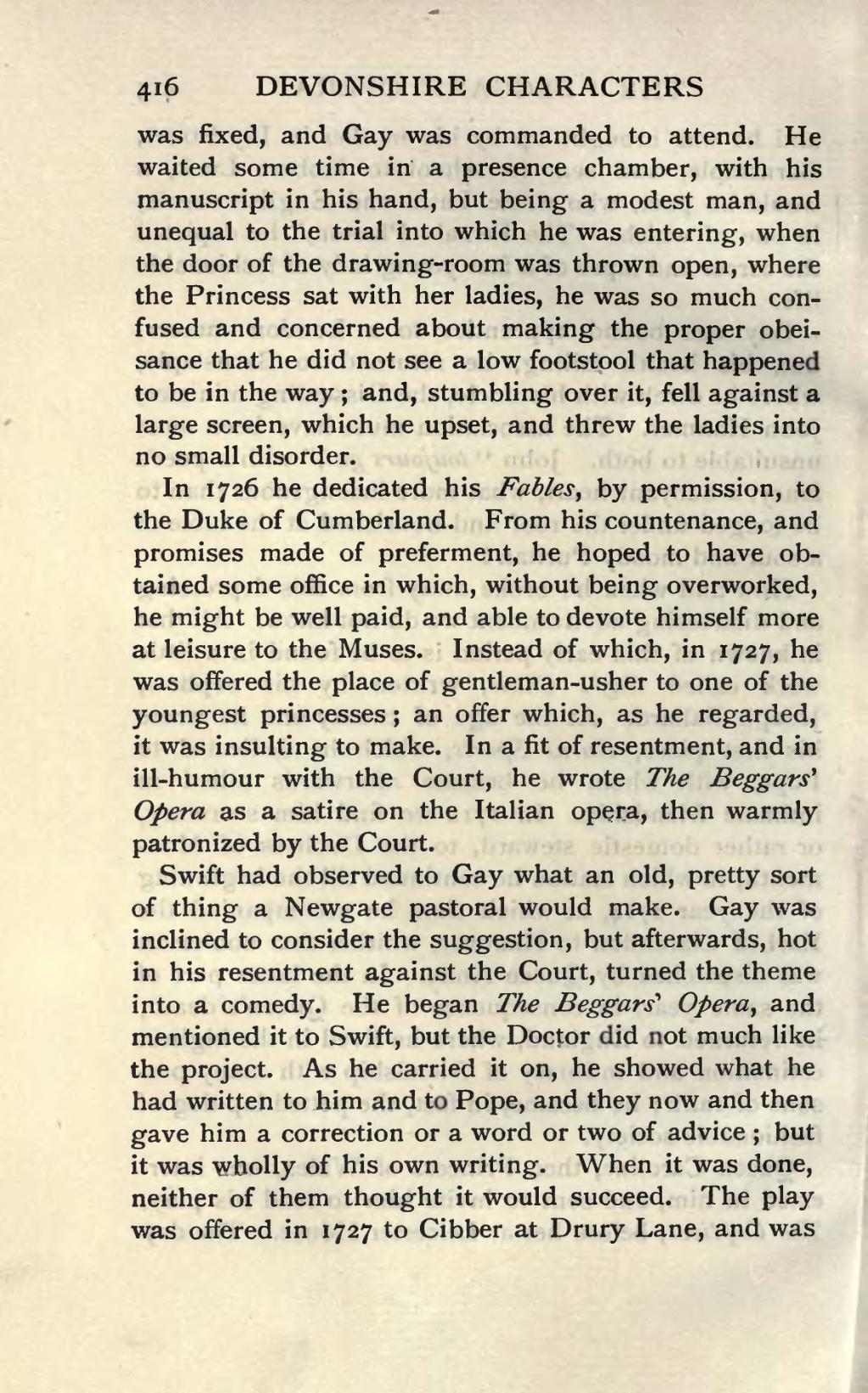was fixed, and Gay was commanded to attend. He waited some time in a presence chamber, with his manuscript in his hand, but being a modest man, and unequal to the trial into which he was entering, when the door of the drawing-room was thrown open, where the Princess sat with her ladies, he was so much confused and concerned about making the proper obeisance that he did not see a low footstool that happened to be in the way; and, stumbling over it, fell against a large screen, which he upset, and threw the ladies into no small disorder.
In 1726 he dedicated his Fables, by permission, to the Duke of Cumberland. From his countenance, and promises made of preferment, he hoped to have obtained some office in which, without being overworked, he might be well paid, and able to devote himself more at leisure to the Muses. Instead of which, in 1727, he was offered the place of gentleman-usher to one of the youngest princesses; an offer which, as he regarded, it was insulting to make. In a fit of resentment, and in ill-humour with the Court, he wrote The Beggars' Opera as a satire on the Italian opera, then warmly patronized by the Court.
Swift had observed to Gay what an old, pretty sort of thing a Newgate pastoral would make. Gay was inclined to consider the suggestion, but afterwards, hot in his resentment against the Court, turned the theme into a comedy. He began The Beggars's Opera, and mentioned it to Swift, but the Doctor did not much like the project. As he carried it on, he showed what he had written to him and to Pope, and they now and then gave him a correction or a word or two of advice; but it was wholly of his own writing. When it was done, neither of them thought it would succeed. The play was offered in 1727 to Cibber at Drury Lane, and was

